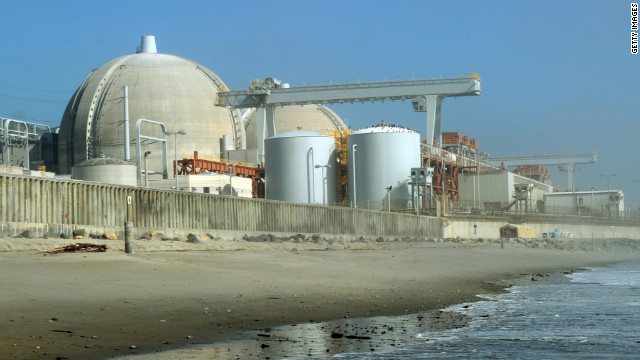
- GE CEO: Nuclear power is so expensive compared with other forms of energy
- "It's really a gas and wind world today," Jeff Immelt told the Financial Times
(Financial Times) -- Nuclear power is so expensive compared with other forms of energy that it has become "really hard" to justify, according to the chief executive of General Electric, one of the world's largest suppliers of atomic equipment.
"It's really a gas and wind world today," said Jeff Immelt, referring to two sources of electricity he said most countries are shifting towards as natural gas becomes "permanently cheap".
"When I talk to the guys who run the oil companies they say look, they're finding more gas all the time. It's just hard to justify nuclear, really hard. Gas is so cheap and at some point, really, economics rule," Mr Immelt told the Financial Times in an interview in London at the weekend. "So I think some combination of gas, and either wind or solar ... that's where we see most countries around the world going."
Mr Immelt's comments underline the impact on the global energy landscape of the US shale gas revolution, Japan's 2011 Fukushima nuclear meltdown and falling prices for some types of renewable power.
The shale boom has sent US natural gas prices down to 10-year lows, a trend some analysts believe will spread elsewhere, while the nuclear industry faces added costs and uncertainty after Fukushima.
At the same time, a 75 per cent fall in solar panel market prices in the past three years has made solar power competitive with daytime retail electricity prices in some countries, according to a recent report by Bloomberg New Energy Finance, while offshore wind turbine prices have steadily declined.
Such factors pose dilemmas for countries such as the UK, which is trying to build new nuclear plants without public subsidy. The ruling coalition is also split over whether to set a new target to make the electricity sector virtually free of carbon emissions by 2030 -- a plan George Osborne, the Conservative finance minister, opposes but many Liberal Democrats back.
Mr Immelt lent weight to the Lib Dem argument, saying GE had found existing EU carbon targets helpful. "I think standards sometimes really drive innovation," he said. "To a certain extent at least, knowing what the rules are and being able to innovate against it is not a bad thing."
Mr Immelt played down the impact of changing energy trends on a company as large as GE, which reported annual profits of $13bn for 2011 (on revenues of $142bn) and sells products for every leading source of energy, from gas and wind turbines nuclear reactors and oil drilling gear, to gas and wind turbines.
"We've got them all, so in some ways when you have them all you don't have to be so smart about anything," he said.
Analysts estimate GE's nuclear revenues, from a joint venture with Japan's Hitachi, at an estimated $1bn, or less than 1 per cent of annual global sales.
Mr Immelt is visiting London during the Olympic Games, which GE sponsors.
The company will announce on Monday that it has made more than $1bn in sales from Olympic host cities since 2006, including $100m from the London games, where GE has sold several power systems, 120 electric vehicle charging stations and thousands of lights.
No comments:
Post a Comment